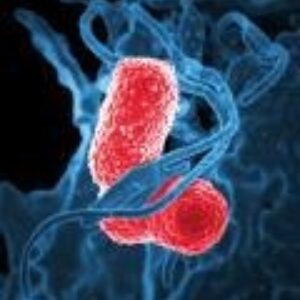
Preparing for Infectious Disease Threats
JOINT NEWS RELEASE: Spokane Continues to Prepare for Potential Infectious Disease Threats
Media Contacts
Kim Papich | kpapich@srhd.org
(509) 324-1539, c (509) 994-8968
Brian Coddington bcoddington@spokanecity.org | (509) 625-6740
Liz DeRuyter
elizabeth.deruyter@Providence.org
(509) 474.2396 | c (509) 703-8160
Full-scale exercise planned for May 17; community leads in its collaboration, ongoing readiness to meet demands of emerging, highly infectious pathogens
SPOKANE, Wash. – On Wednesday, May 17, 2017, multiple health and response partners will achieve yet another milestone in their collaboration and ongoing readiness to meet the demands of emerging infectious diseases. Between 8:00 a.m. – 11:00 a.m., these agencies will conduct a full-scale emergency simulation specific to a potentially highly infectious agent, also referred to as a special pathogen, entering the Spokane community.
The exercise will begin at Spokane International Airport, with the arrival from Alaska of a mock patient suspected of being exposed to a special pathogen, in this case Ebola, and transport to Providence Sacred Heart Medical Center and Children’s Hospital (Sacred Heart) for pathogen identification and patient isolation in its regional treatment center known as the Special Pathogens Unit.
While the simulation should have no impact on area traffic, there will be Spokane Police Department traffic control points for a short period beginning at approximately 9:00 a.m. at 7th and 8th avenues in the immediate vicinity of Sacred Heart. There will also be a number of local emergency response vehicles en route to, and parked at, the hospital.
Sacred Heart applied to, and was designated by, US Department of Health and Human Services in 2015 as one of 10 regional treatment centers in the country, serving Region X (Washington, Idaho, Oregon and Alaska). The local special pathogens team began its advanced training immediately thereafter and participates in ongoing training and education, including specially designed quarterly exercises, community-wide drills and monthly education.
The participants in this exercise include American Medical Response, City of Spokane, Greater Spokane Emergency Management, Life Flight Network, Sacred Heart, Spokane County Sheriff’s Office, Spokane Fire Department, Spokane International Airport and its Fire and Police departments, Spokane Police Department, Spokane Regional Health District, Washington State Region 9 Healthcare Coalition, Washington State Department of Health, and US Department of Health and Human Services—all part of a joint commitment to ongoing safety and training for hospital and public health staff and response officials.
Also on-hand for the exercise will be professionals from the National Ebola Training & Education Center, who help maintain proficiencies and validate expertise in responding to Ebola and emerging threats.
“By serving as the regional partner for our country and conducting these trainings we can gain feedback from remarkable medical centers like Emory University and Massachusetts General hospitals, and Cedars-Sinai Medical Center. This is an extraordinary advantage to share ideas, concepts and procedures so that we can all prepare the same way,” said Peg Currie, chief operating officer for Sacred Heart.
Born out of the Ebola epidemic two years ago, the 10-room unit represents state-of-the-art care for patients who have, or are suspected of having, highly infectious, relatively rare diseases including viruses that cause hemorrhagic fevers, like Ebola, as well as other recently identified and emerging viral diseases like coronavirus, which can cause Middle East respiratory syndrome (MERS Co-V) and severe acute respiratory syndrome (SARS).
“We know that patients with infectious diseases are going to come no matter what and with this extra level of preparedness and safety, we can care for these patients more prudently - not only for the community but for the caregivers,” said Susan Sjoberg, Epidemiology program manager for the health district. “The idea is to be ready.”
Media are encouraged to cover the exercise and should park on 5th or 6th avenues, then proceed to Sacred Heart Children’s Hospital Parking Garage by 8:30 a.m. The patient transport ambulance and its law enforcement escorts will park at the doctor’s parking entrance on Division Street just south of 7th Avenue at approximately 9:00 a.m. Media will then be escorted upstairs to the Special Pathogens Unit on Level 2 of Sacred Heart Children’s Hospital to witness the “patient’s” admission into the 14,000 square foot isolation unit.
Experts will then be available to speak with media from approximately 10:30 a.m. – 11:00 a.m. in room 8 of the Special Pathogens Unit. Accessible to media will be:
- Brian Schaeffer, interim fire chief, Spokane Fire Department. Schaeffer can speak to training and coordination around patient transport, as well as decontamination of vehicles.
- Christa Arguinchona, assistant nurse manager for Intensive Care Unit, Sacred Heart and Special Pathogens Unit lead, is well versed in the origination and operation of the unit, as well as the development, training and education of its dedicated team.
- Susan Sjoberg, program manager for Epidemiology at Spokane Regional Health District is knowledgeable about public health’s local and regional role in responding to, and helping to manage, infectious agents in the community including overseeing coordination between multiple agencies.
- Nicholas Cagliuso, assistant vice president for Emergency Management, NYC Health + Hospitals Bellevue Hospital and advisor for National Ebola Training & Education Center. Cagliuso is best equipped to speak to national prevention efforts around emerging special pathogens, particularly Ebola, and his work to help educate and support regional response centers, as well as share his team’s experience treating an Ebola patient in 2014.
- Erika Henry, Healthcare Preparedness lead for Washington State Department of Health’s Public Health Emergency, Planning Response program. Henry can speak to statewide emergency preparedness activities, and specific to special pathogens, the coordination of transport within the region and with other states.
Behind-the-scenes B-roll of the full exercise will be made available to all media shortly after the exercise.
